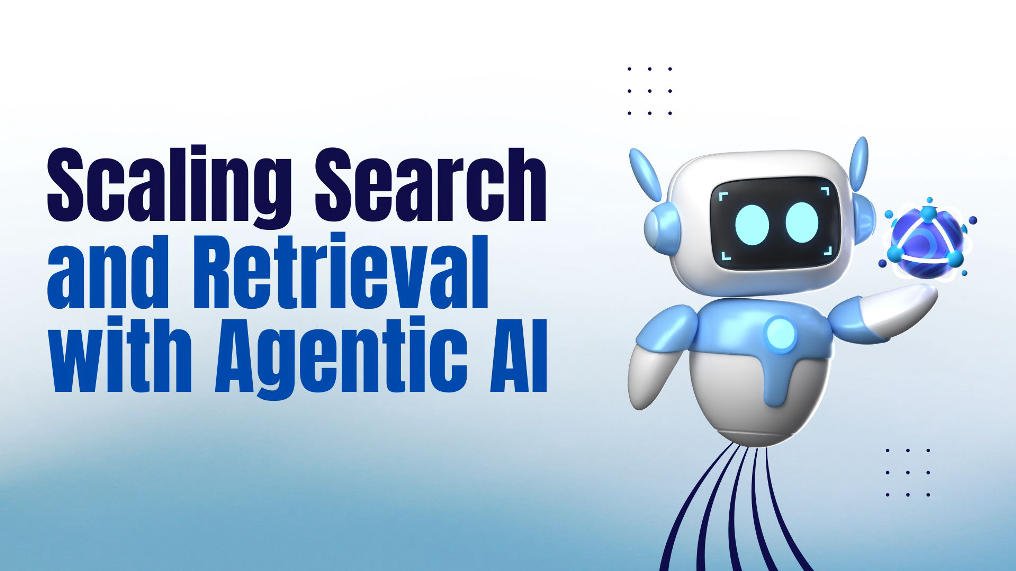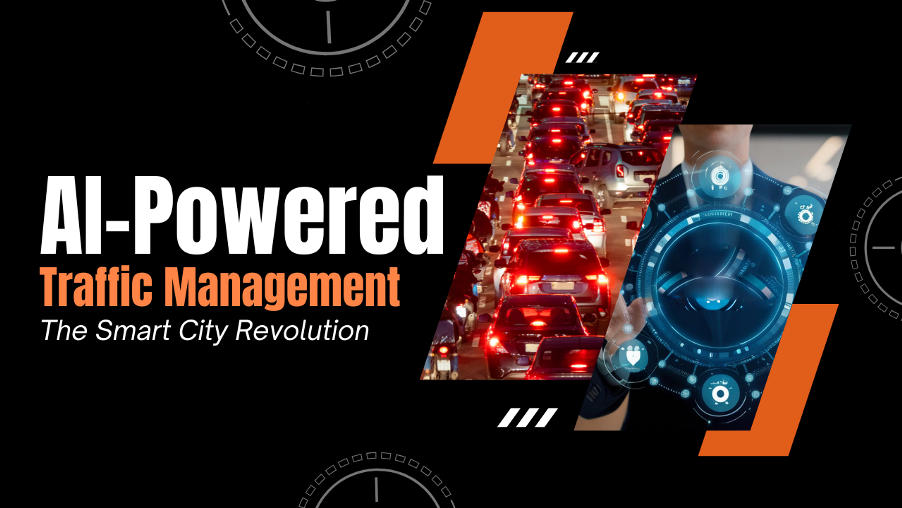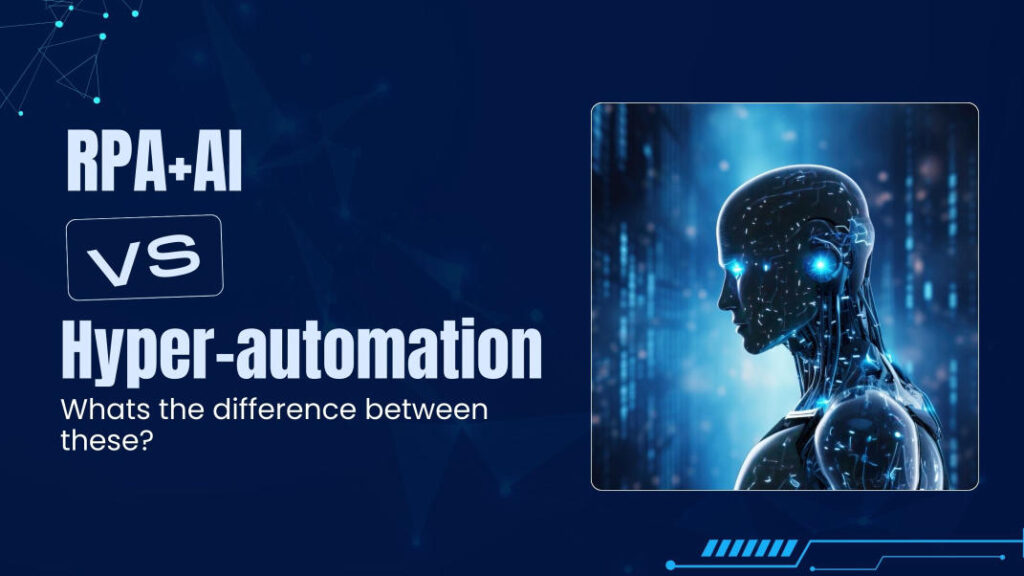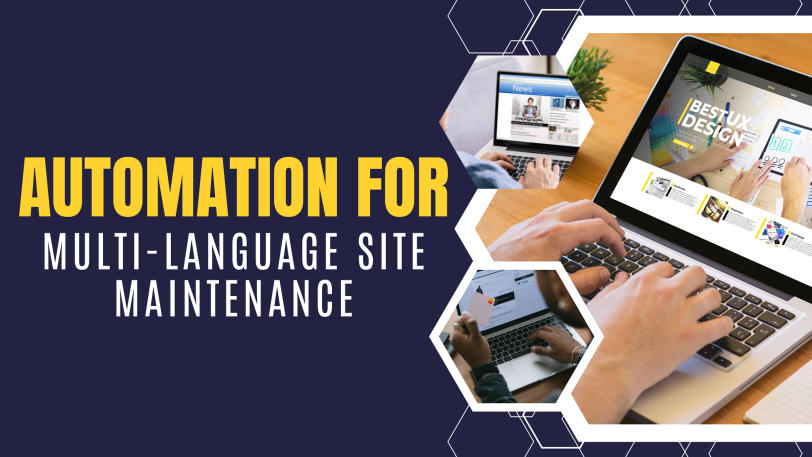The data scenario in the business world is growing at an exponential rate. From customer support logs and compliance to product specifications and knowledge bases, organizations generate and store a vast magnitude of information every day. However, the biggest problem businesses face isn’t storing this data-it is searching for, retrieving, and leveraging that data effectively.
Traditional search techniques-though they have all their power-mess with these so-called unstructured or context-fit data. The Agentic RAG paradigm unfolds there. Using agentic AI development principles, this new methodology changes how businesses retrieve information, interact with knowledge, and generate outcomes for industries.
In this blog, we will explore what Agentic RAG is, why it matters, and how it is redefining search and retrieval, particularly for enterprises related to RPA business solutions, AI-powered RPA services, and AI chatbot services.
What is Agentic RAG?
Retrieval-Augmented Generation (RAG) is an artificial intelligence technique that combines two very powerful capacities:
Information Retrieval-It will be the process of fetching relevant documents, pieces of data, or records from a knowledge base.
Generative AI– Synthesizing coherent and human-like responses using LLMS.
Agentic RAG takes mechanisms further, as a passive tool that waits for queries; such a model acts as an autonomous agent, analyzing data proactively, asking clarifying questions, chaining multiple steps, and coming up with actionable insights.
For example, the Agent RAG system does more than just search for the policy documents; it interprets clauses, looks at the regulations, and generates finalized summaries for auditors on how to comply.
That is the perfect combination of retrieval precision with agent intelligence and the reason why companies are turning to Agentic RAG for solving sophisticated search and knowledge management problems.
Why Traditional Search Isn’t Enough
Before proceeding further with Agentic RAG, let us inspect why traditional enterprise search systems have ceased functioning properly.
- Keyword Dependency: The foremost issue is that classic search engines rely on keywords. If the exact keyword is not mentioned, the results may be incomplete or even irrelevant.
- Context Blindness: These systems basically are blind to intent or context. Say, for example, an interesting query like “AI regulation summary for EU” will just churn out scores of unrelated documents instead of giving you a consolidated answer.
- Unchanging Results: Traditional search just scoops in the information; it does not give any transformation to that. The onus for interpreting and synthesizing this knowledge then falls on the user.
At present, businesses are looking for intelligent systems that can do more than just retrieval—intelligent systems that actually come with context-aware answers, recommendations, and are easy to integrate with the workflow.
The Role of Agentic AI Development
Agentic RAG rests on the firm basis of agentic artificial intelligence development. While traditional AI models answer based on their own knowledge, agentic AI systems are intelligent agents:
- The agents plan multi-step reasoning rather than answering in single turns.
- They are capable of interacting with APIs, tools, and external sources of data.
- They can even learn from user feedback, thus perpetually improving.
Embedding search capability into these agent-driven models provides organizations with AI systems that don’t just answer-they solve problems holistically.
This is especially critical for enterprises that utilize AI-powered RPA services, where automation must respond dynamically and adaptively to contexts.
How Agentic RAG Redefines Search & Retrieval
Following are some practical ways in which Agentic RAG is transforming search for modern businesses:
Contextual Precision
One major advantage that Agentic RAG bestows upon learners is that you can move beyond just simple keyword matches. By textbook dictum, search engines would return numerous outcomes, some of which might be partially relevant to the query posed. The Agentic RAG system understands the semantic meaning of a question, thereby truly aligning responses with the intent of the user rather than merely based on the words typed into the dialogue box. For example, if a customer support representative asks, “What’s the refund process for premium customers in Canada?”, the system is not going to give a generic refund policy; it is going to retrieve those country-specific guidelines, process that information, and present the answer in a simplified plain English form thereby saving time and enhancing precision.
Dynamic Knowledge Updates
Another critical feature of Agentic RAG is its ability to draw from information sources that are periodically updated.The label ‘static database’ is not its appropriate name, because such systems monitor updated information items like alterations of the product, changes in demands, rule and timeline deflection and competition development until today. Consequently, business leaders and employees would at least always be armed with good-in-time-and-so-far information upon which they can depend: when making a decision.
Action-Oriented Response
The generative intelligence behind the Agentic RAG does more than simply retrieval; it churns raw data into summaries, insights, and actions. That means instead of having 50 pages of a compliance guide read by managers, it instantly produces an executive summary or a step-by-step action plan to address the matter at hand, speeding up better decision-making.
Integration with Business Automation
Agentic RAG enhanced with RPA solutions is very powerful. Imagine an automated workflow wherein:
- The RAG system retrieves a vendor contract.
- The AI agent checks it against the compliance rules.
- And upon compliance approval, the RPA bot initiates approval workflows.
This seamless integration saves time, reduces human error, and improves efficiency across departments.Seamless integration saves time, cuts down human errors, and increases efficiency in different departments.
Conversational Interfaces
With artificial intelligence chatbot services, Agentic RAG supports natural conversations with business knowledge. Employees can easily “chat” with their enterprise data just as they would message a friend-questioning, clarifying, and probing for insights.
Key Business Benefits of Agentic RAG
- The speed of decision-making has been promoted: the retrieval of salient information should now be instantaneous instead of requiring one to walk through multiple files.
- Better compliance has been encouraged: automated delivery and interpretation of legislations would minimize the risk of noncompliance.
- Customer experience enhancement: With RAG spawning chatbots able to provide answers both quickly and correctly, customer-facing teams may never be challenged for queries again.
- Operational efficiency: Less manual labor due to research, reporting, and document analysis.
- Scalability is available as the solution works across any industry-banking, healthcare, retail, legal, and others.
Use Cases of Agentic RAG in Enterprises
Finance
Banks and insurers handle thousands of documents of regulations and policies. Agentic RAG can summarize a set of regulations, identify anomalies, and walk risk officers through hard decisions.
Healthcare
Hospitals can use it to be able to retrieve patient history, interpret medical guidelines, and generate personalized instructions for care, all while working with AI-powered RPA services for appointment scheduling and billing.
Legal Industry
Law firms, however, spend several hours over the tracing and study of cases and precedents. Agentic RAG limits this time by searching for relevant cases and summarizing them so that lawyers can spend that time strategizing.
Retail & E-commerce
Customer service can employ RAG-powered AI chatbot services to respond quickly to questions about product specifications, return policies, and shipping.
Manufacturing
Agentic RAG is a boon to a technician when confronted by a breakdown of a machine. It retrieves manuals, highlights the steps in troubleshooting, and even guides through the repair process in real-time.
Agentic RAG + RPA: The Next Frontier
The real game changer lies in the fusion of Agentic RAG with RPA business solutions. Agentic ROI provides insights providing context for the very same RPA-automated duties.
Example:
- RPA processes invoices.
- Agentic RAG extracts terms from contracts, compares them against invoices, and flags discrepancies.
This integration represents the future of AI-powered RPA service, allowing automation to free itself from rigidity and become a tech engine for adaptive end-to-end decision support.
Building the Future with Agentic AI Development
In this age of digital transformation, enterprises consider not whether to implement AI but rather how to embrace it effectively. Agentic RAG is basically a blueprint for the future, empowered by agentic AI development:
- It is more than mere search: It provides actionable intelligence.
- More than automation: Adaptive, agent-driven workflows would have been provided.
- More than chatbots: Intends to provide conversational access to enterprise knowledge.
Forward-looking businesses collaborate with partners in AI-powered RPA services, RPA business solutions, and AI virtual assistant services for implementation of Agentic RAG at scale.
Conclusion
As timely information pays attention to the swift and intelligent interpretation of retrieved documents, the present-day world renders itself data-driven. Agentic RAG is redefining this process by linking retrieval with generative intelligence and agentic abilities.
Compliance in finance and customer support in retail could be some of the areas where enhancement possibilities through Agentic RAG are numerous. Interlaced with business solutions of RPA and RPA services of AI-powered ones, it represents true digital agility for enterprises.
If your organization is looking into the path of developing agentic AI or if it wants to make advanced search functionality an integral part of its workflows, the time for action is now. With Agentic RAG, businesses will be able to enhance not only information search but also their way of thinking, decision-making, and development therein.




